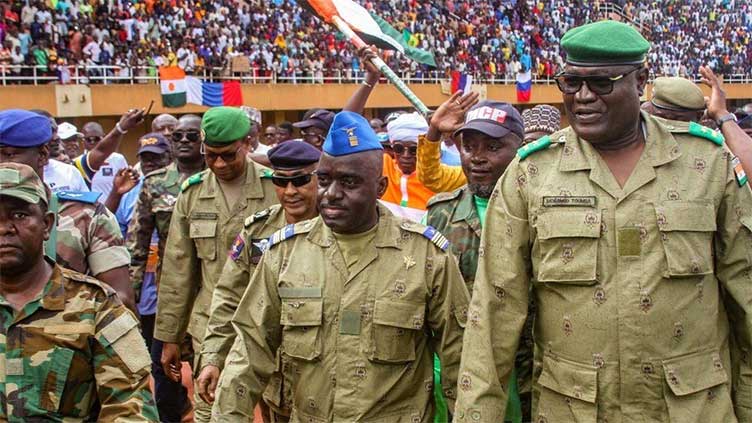US warned Niger about ties to Russia, Iran before junta revoked accord, Pentagon says

World
The Pentagon said it was seeking clarification about the way ahead
WASHINGTON (Reuters) – US officials traveled to Niger last week to express concerns about the country's potential development of ties to Russia and Iran before the ruling junta on Saturday revoked an accord governing the roughly 1,000 US military personnel there, the Pentagon said on Monday.
The Pentagon added it was seeking clarification about the way ahead. Niger said on Saturday it had revoked "with immediate effect" its military accord with the United States that had allowed Pentagon personnel to operation on its soil.
Pentagon spokesperson Sabrina Singh said the US government had "direct and frank" conversations in Niger ahead of the junta's announcement, and was continuing to communicate with Niger's ruling military council known as the CNSP.
"The US delegation was there to raise a number of concerns. ... We were troubled (about) the path that Niger is on. And so these were direct and frank conversations, to have those in person, to talk about our concerns and to also hear theirs," Singh said.
"US officials expressed concern over Niger's potential relationships with Russia and Iran."
Since its July 2023 coup, the military junta that seized power in Niamey has kicked out French and European forces, and quit the Economic Community of West African States regional bloc. Like juntas in neighboring Mali and Burkina Faso, it has also strengthened military ties with Russia.
High-level Russian defense officials including Yunus-bek Yevkurov, Russia's deputy defense minister, have visited the country and met with the junta leader.
The prime minister of the ruling junta, Ali Mahamane Lamine Zeine, visited Iran in January.
In its statement on Saturday, the ruling junta said it rejected what it called false allegations by the US delegation that Niger "would have signed a secret agreement on uranium with the Islamic Republic of Iran."
Singh did not elaborate on US concerns regarding Iran.
The US delegation to Niger on March 12-13 included US Assistant Secretary of State for African Affairs Molly Phee, US Assistant Secretary of Defense for International Security Affairs Celeste Wallander and the top US general for the region, General Michael Langley.
The US State Department said on Tuesday those talks were meant to address "Niger's return to a democratic path and the future of our security and development partnership."
After the coup, the US military consolidated its forces Niger, moving troops from Air Base 101 in the capital of Niamey to Air Base 201 in the city of Agadez.
The base had been a core part of the US counter-terrorism strategy in the region and was once used to target Islamic State militants and Jama'at Nusrat al-Islam wal Muslimeen, an al Qaeda affiliate, in the Sahel.
Since the coup, the US forces have been carrying out operations for force protection only, Singh said.
Singh did not rule out a resolution that would allow US military presence to remain in Niger, saying: "We want to see our partnership continue, if there is a pathway forward."


